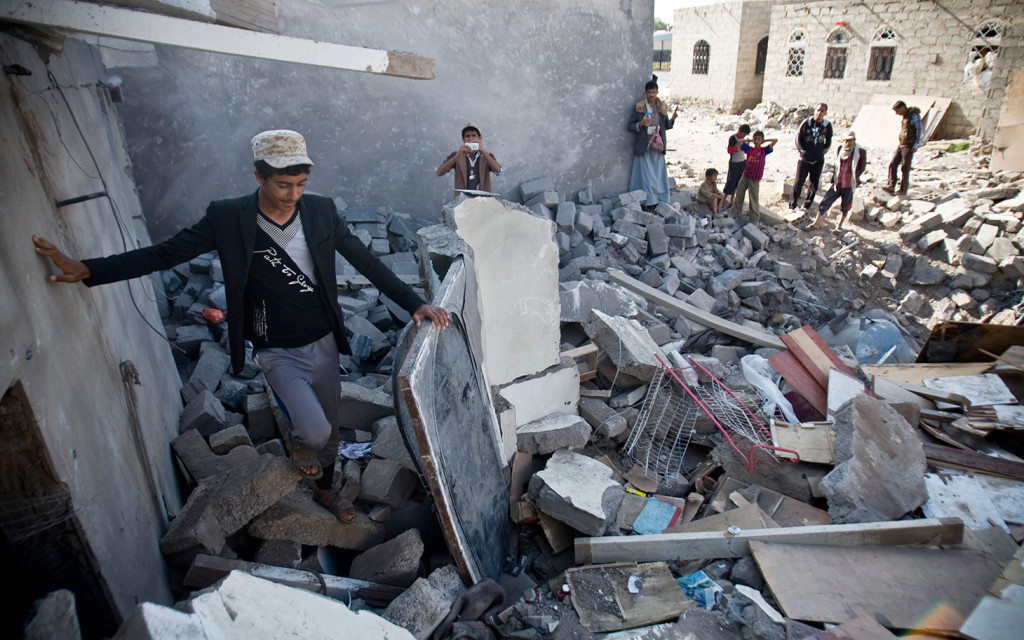On 30 September 2015, the Netherlands withdrew its resolution calling for the U.N. High Commissioner for Human Rights to investigate possible abuses and conflict-related crimes in Yemen. The withdrawal comes amid significant pressure from Saudi Arabia and its coalition allies to prevent an independent inquiry into the human rights situation in Yemen. Saudi Arabia has led a bombing campaign in support of Yemeni President Abd Rabbuh Mansur Hadi, who was ousted by Houthi rebels in March 2015. Human rights organizations accuse the Saudi-led coalition of bombing civilian targets and preventing vital humanitarian aid from reaching Yemenis through a continued naval blockade.
The Dutch proposal enjoyed support of Germany and six other European countries. It called for U.N. High Commissioner for Human Rights Zeid Ra’ad al-Hussein to “dispatch a mission…to monitor and report on the situation of human rights in Yemen.” The mission’s independent team of experts would have reported on human rights abuses committed by both the Saudi coalition and the Houthi rebels, and would have allowed much needed humanitarian aid such as food and fuel to reach Yemeni civilians. Instead, the approved Saudi resolution only asks the United Nations Human Rights Office to “provide technical assistance and to work with the government of Yemen, as required, in the field of capacity building.”
Human rights groups have expressed their disappointment over the withdrawal of the Dutch proposal and the adoption of the Saudi proposal. Phillipe Dam of Human Rights Watch said the proposal represented a “lost opportunity for the Council and a huge victory for Saudi Arabia.” He added that the decision to scrap the proposal was driven “by the preference of the British and the Americans for consensus,” and by “Saudi Arabia’s total opposition.” U.S.-based journalist Ali Gharib lamented the lost opportunity to assess the human rights situation, saying, “You won’t hear much neocon crowing about how the Hadi-Saudi team will be self-inspecting rights violations in Yemen.”
Meanwhile, the humanitarian situation in Yemen continues to deteriorate. More than 2,300 Yemeni civilians have been killed since Saudi coalition bombing began, including some 400 children. The war has left 1.5 million Yemenis displaced and 80% of the population in need of humanitarian assistance. According to Amnesty International, “the vast majority of civilian deaths and injuries have been caused by the Saudi Arabia-led coalition which is backed by the USA and the UK.” Amnesty additionally pointed to coalition forces’ use of banned cluster munitions, some of which were produced or designed in the USA. The withdrawal of the Dutch proposal comes in the wake of Saudi Arabia’s recent appointment to head a panel that advises the U.N. Human Rights Council, a controversial move given the kingdom’s well-documented human rights abuses.
The international community must not allow Saudi Arabia to use its position on the Human Rights Council to stifle independent inquiry on the human rights situation in Yemen. As the Saudi-led coalition’s bombing campaign enters its eighth month, Yemeni civilians continue to suffer and the casualty figures continue to rise. The accepted Saudi proposal relies on the Hadi government to report on human rights violations, and it is inconceivable that crimes committed by coalition forces will receive due attention under this plan. The international community must press Saudi Arabia, both publicly and privately, to allow the UN to investigate any and all human rights abuses that have occurred since the coalition campaign began.
Matthew Tramonti is an advocacy intern at ADHRB.





